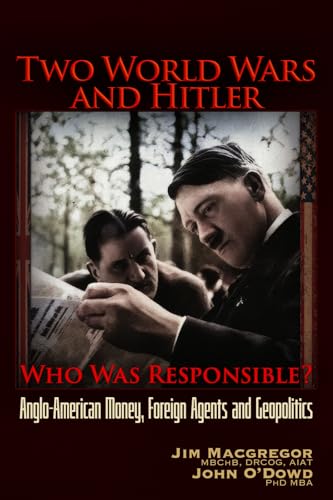
Gas! Gas! Quick, Boys!
by Michael Freemantle
"How Chemistry Changed the First World War"
Popularity
1.44 / 5
* A book's popularity is determined by how it compares to all other books on this website.
Where to buy?
Buy from Amazon* If you buy this book through the link above, we may receive a small commission at no extra cost to you.
Gas! Gas! Quick, Boys! by Michael Freemantle
Details
War:
World War I
Perspective:
Researcher
True Story:
Yes
Biography:
No
Region:
Europe
Published Date:
2012
ISBN13:
9780752466019
Description
Main Themes and Topics
The primary focus of Gas! Gas! Quick, Boys! by Michael Freemantle is the impact of chemistry on the course of the First World War. The book delves into the dualistic nature of chemistry during the war, framing it as both a destructive and preservative force. Freemantle explores how industrial-scale production of chemicals became crucial for the development of artillery shells, fuses, and other weapons, highlighting the role of various chemical agents, such as chlorine, mustard gas, and phosgene, in chemical warfare. Additionally, the book covers how chemistry served defensive and healing roles, depicting it as a double-edged sword. Elements like chlorine are examined for their dual purposes as both lethal weapons and life-saving disinfectants. Furthermore, Freemantle underscores the evolution of industries to satisfy the growing demand for more powerful explosives and advancements in wartime medicine.
Writing Style and Tone
Michael Freemantle's writing style in Gas! Gas! Quick, Boys! is both informative and engaging, striking a balance between scientific detail and accessibility. His narrative is comprehensive, with a meticulous attention to historical detail that showcases his expertise in chemistry. The tone of the book is authoritative, yet it remains accessible to readers who may not have a scientific background. Freemantle's ability to translate complex chemical processes into understandable language is a standout feature of the work, inviting readers to grasp the multifaceted role of chemistry in warfare.
Brief Summary (no spoilers)
Gas! Gas! Quick, Boys! provides an all-encompassing study of the chemistry that defined the First World War. Freemantle chronicles the chemical arms race, detailing how both sides of the conflict utilized chemical knowledge to develop weapons and protective measures. He examines the production of explosives and chemical agents, highlighting their devastating effects on the battlefield. The book also explores the advancements in medicine and chemical innovations that protected soldiers and improved their chances of survival. Freemantle's narrative gives readers insight into the 'Chemists' War,' revealing the full scope of chemistry's role during this global conflict.









